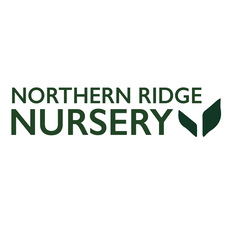Grow Once, Harvest for Years: Top Perennial Vegetables
Are you looking to cultivate a garden that yields riches year after year without the need to replant each season? Perennial vegetables are a phenomenal choice, offering not only ease of maintenance but also the resilience and diversity your garden needs. Unlike annuals, which complete their life cycle in just one growing season, perennials come back year after year, poised to deliver fresh produce with minimal effort on your part. This definitive guide explores some of the top perennial vegetables, their unique benefits, and how to cultivate them successfully.
Why Choose Perennial Vegetables?
Before diving into the specifics of various perennial vegetables, it's crucial to understand why they are an excellent addition to your garden:
- Sustainability: Perennial crops require less soil tillage, which helps to preserve soil structure and health.
The Leading Perennial Vegetables for Your Garden
Choosing the right vegetables to grow can determine the success and longevity of your garden. Here are top perennial vegetables that promise to deliver both in terms of yield and ease of cultivation:
1. Asparagus (Asparagus officinalis)
Often one of the first signs that spring has arrived, asparagus is a perennial favorite among gardeners due to its early harvest season and minimal long-term care requirements. After the initial setup, you can expect to harvest asparagus spears typically in the second or third growing year post-planting, and enjoy the bounty for up to 20 years or more.
Planting Tips: Plant asparagus crowns in a sunny spot, in well-drained soil, during early spring. Remember, patience is key with asparagus – proper establishment early on ensures a robust harvest in subsequent years.
2. Rhubarb (Rheum rhabarbarum)
Rhubarb is another perennial that is exceptionally easy to grow and can yield harvests for up to a decade. While the leaves are toxic, the stalks provide tart flavors perfect for pies and jams.
Planting Tips: Rhubarb thrives in slightly acidic soil with good drainage. It is advisable to allow the plant to establish itself in the first year by avoiding harvesting; you can start harvesting moderately in the second year.
3. Jerusalem Artichoke (Helianthus tuberosus)
Also known as sunchoke, this root vegetable thrives with minimal attention, and its tubers can be used similarly to potatoes. Jerusalem artichokes produce sunflower-like blooms adding to your garden's aesthetics.
Planting Tips: Plant tubers in early spring in any well-draining soil. Sunchokes can be aggressive growers, so consider this when picking a spot in your garden.
4. Globe Artichoke (Cynara scolymus)
Distinctly different from Jerusalem artichoke, globe artichokes are known for their edible flower buds. They add a dramatic element to any garden with their large, silvery-green leaves and impressive flowers.
Planting Tips: They require fertile, well-drained soil and plenty of sun. In colder regions, mulching or sheltering the plants in winter can help protect them.
5. Sorrel (Rumex acetosa)
With its tangy, slightly sour taste, sorrel is a wonderful addition to salads and soups. Perennial sorrel can provide an early spring harvest and continue through the fall.
Planting Tips: Sorrel prefers partial shade to full sun and well-drained, moist soil. It is relatively low-maintenance and can also be grown in containers.
6. Egyptian Walking Onions (Allium × proliferum)
These unique onions are named for their ability to "walk" across the garden. As the topsets grow heavy, they bend to the ground and take root, starting new plants.
Planting Tips: Good for almost any soil type, walking onions need full sun or partial shade. They are incredibly hardy and can be harvested almost all year round in some areas.
... and many more!
While the above list is a great starting point, many other perennial vegetables, such as sea kale, winter leek, and perennial spinach, also make excellent choices for a sustainable garden.
Getting Started with Perennial Vegetables
Starting your perennial vegetable garden requires some initial effort in planning and preparing the soil, but the long-term rewards are considerable. Choose a well-draining, fertile site. it's also beneficial to consult local gardeners or agricultural extensions for advice tailored to your specific climate and soil conditions.
Remember, perennial vegetables might not produce much in the first year as they establish their roots and store energy for future seasons. However, with minimal upkeep, these plants will reward you with bountiful harvests for years to come.
Don't wait: Now is the perfect time to plan and plant the perennial vegetable garden of your dreams!
Call to Action -->Your Year-Round Garden Awaits!
Imagine the joy of harvesting food from your garden not just once a year, but season after season. Our collection of perennial vegetables at [Your Garden Shop Link] is carefully curated to offer you the very best in durability, yield, and flavor.
Visit us today to get everything you need to start your perennial vegetable garden, and enjoy fresh, home-grown produce year after year!










